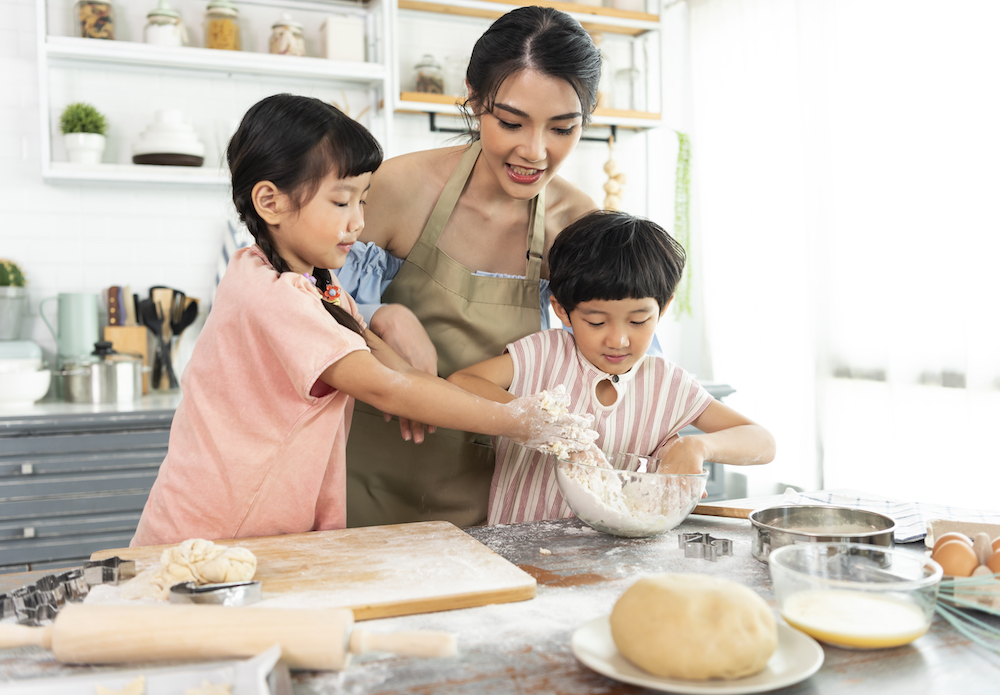World Kindness Day on November 13 highlights good deeds in the community to focus on the positive power of kindness. This bridges the divides of race, politics, gender, religion and location. Teach your kids to be kind to their friends, family, the environment and their community with these small acts of kindness.
Teaching Children about Kindness
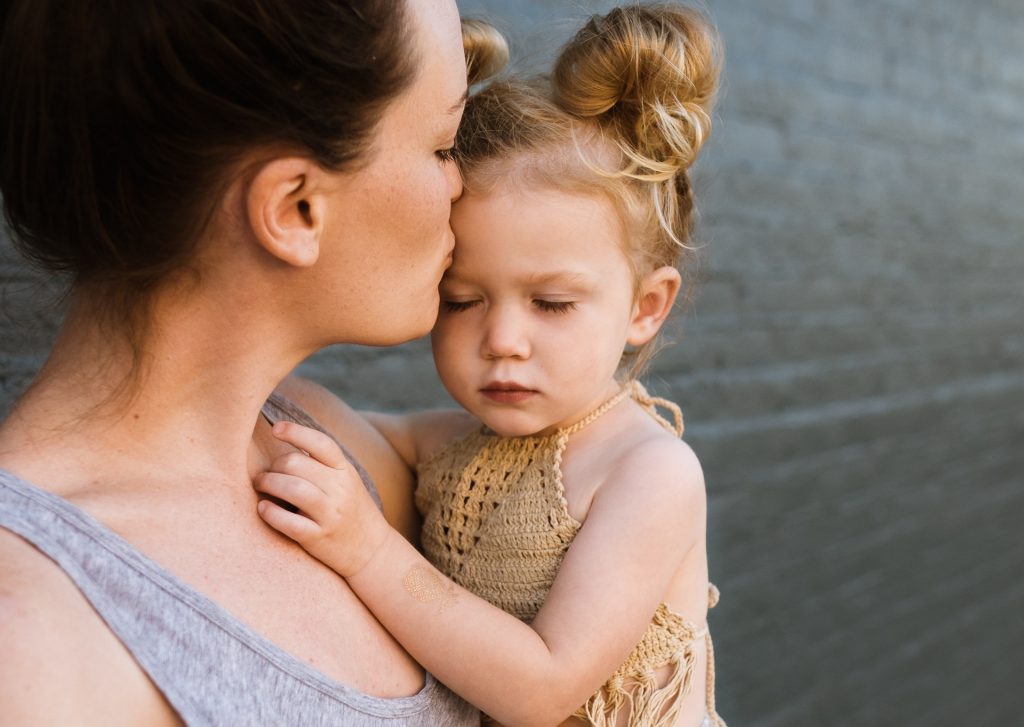
Golden and Platinum Rules
Start with the Golden Rule, which is to treat others the way we would like to be treated. For example, you wouldn’t want to be teased about your mistakes, so you shouldn’t tease your sibling or friend. Children as young as toddlers may also emphatise with friends who fall or start crying, and you can articulate this experience for them. For example, you might say, “You feel sad because your friend hurt herself and you care about her.” Another way is to use “we language” to include all members of the family and help your child think of themselves as part of a social group. After your child understands the Golden Rule, explain the Platinum Rule. This means we treat people the way they prefer, even if it’s different from what we’d prefer. An instance of this might be remembering their siblings’ favourite colours or snacks. Ask your child how their sibling or friend might be feeling when they’re doing something their sibling or friend might dislike. Model empathy with pretend play, real-life scenarios or reading a book together.
Motherswork Recommends: Riverside Ramblers, and Tale of Two Friends ($22.90 to $29.90)
Modelling Kindness for Our Preschoolers
Of course, our kids are prone to copying us so we can start modelling kindness for them, such as saying thank you to someone who holds the lift for us. We might also do more tangible acts of kindness, sharing a holiday with a lonely relative, and taking care of people in need. At home, trust your empathy over parenting rules and try to fill the home with love, praise, attention and laughter. Notice when your child is doing something kind and praise them for it to reinforce their behaviour. Even apologising when they’ve done something wrong is a form of kindness. Along the same lines, speak kindly to them when they’ve done something wrong. Try as much as possible to discipline them in a positive way. Furthermore, help them identify how it feels to be kind and other people’s responses. Noticing when others are kind to them will spark gratitude and help spur them to be kind as well.
Further Reading: Healthy Behaviour Management Strategies for Children
Benefits of Being Kind
Altruistic and strategic giving activate overlapping reward networks in our brains, causing that warm glow that we experience. Additionally, strategic decisions show greater activity in the striatal regions of the brain, which coordinates multiple aspects of cognition, including reinforcement, motivation, and reward perception. Other benefits our children might experience include greater self-esteem and sense of belonging, better concentration and improved health with less stress.
Motivating Your Children to Be Kind
To motivate your children to be kind, print out this Kindness Tracker Jar and they can colour a heart every time you notice they did something kind. Another alternative is to fill a small jar with marbles or pom poms as a visual representation of how many kind deeds they’ve done. Additionally, a small treat like going to their favourite restaurant or getting a toy might encourage them to do more kind deeds.
Being Kind to the Family
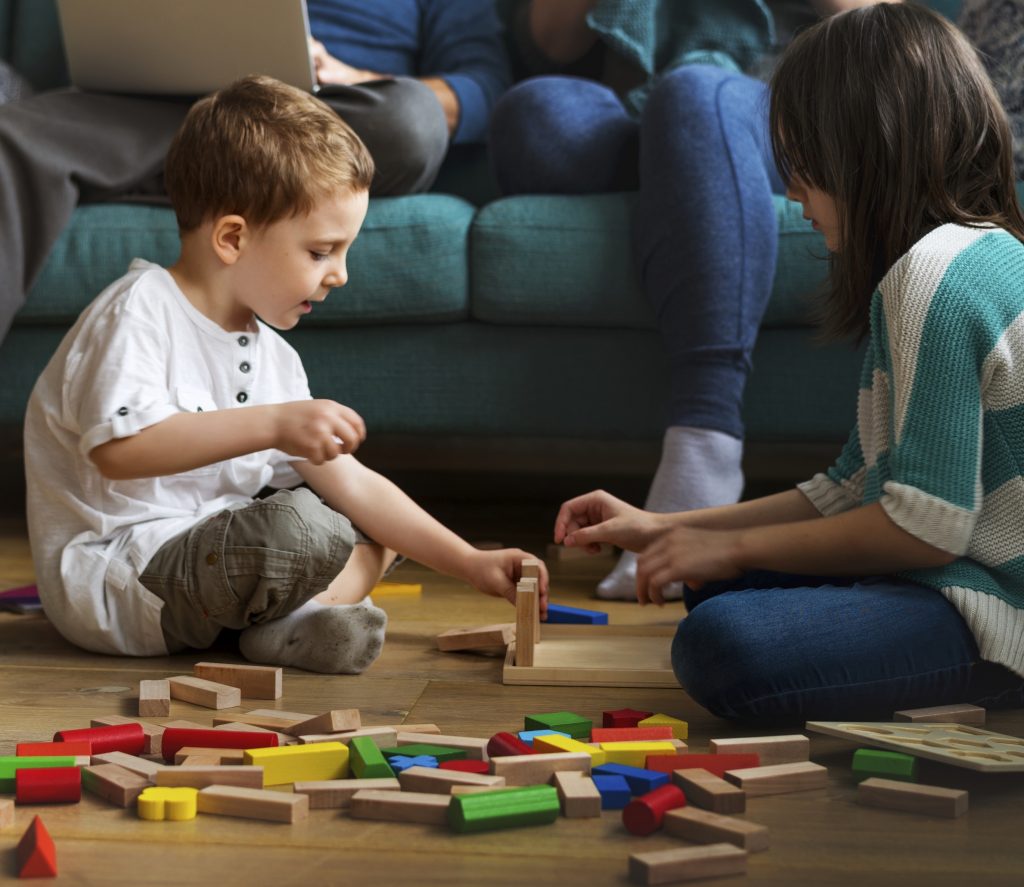
Some ways children can be kind to their family members include helping younger or older siblings with chores or playtime or playing nicely with them. Others might be doing chores without being told or complimenting their family members. Try Kindness Bingo for more ideas on how to help each other in the family. You’ll need about 25 counters or coins to pass to each player.
After cutting out the calling cards, the game leader passes out the Bingo cards and the counters, and then draws from the Calling Cards bowl. Read out the instructions, and cover the appropriate square with the coins. The first to cover four in a row horizontally, vertically or diagonally and yell out Bingo. The winner will have to choose a kind act from the cards and commit to doing that kind act during the day if possible. Furthermore, the winner can also assign another player to do a different kind act. Examples of the acts on the Bingo cards include drawing a picture for someone and helping with a pet.
Relevant Reads: Family Pets
Being Kind to the Environment
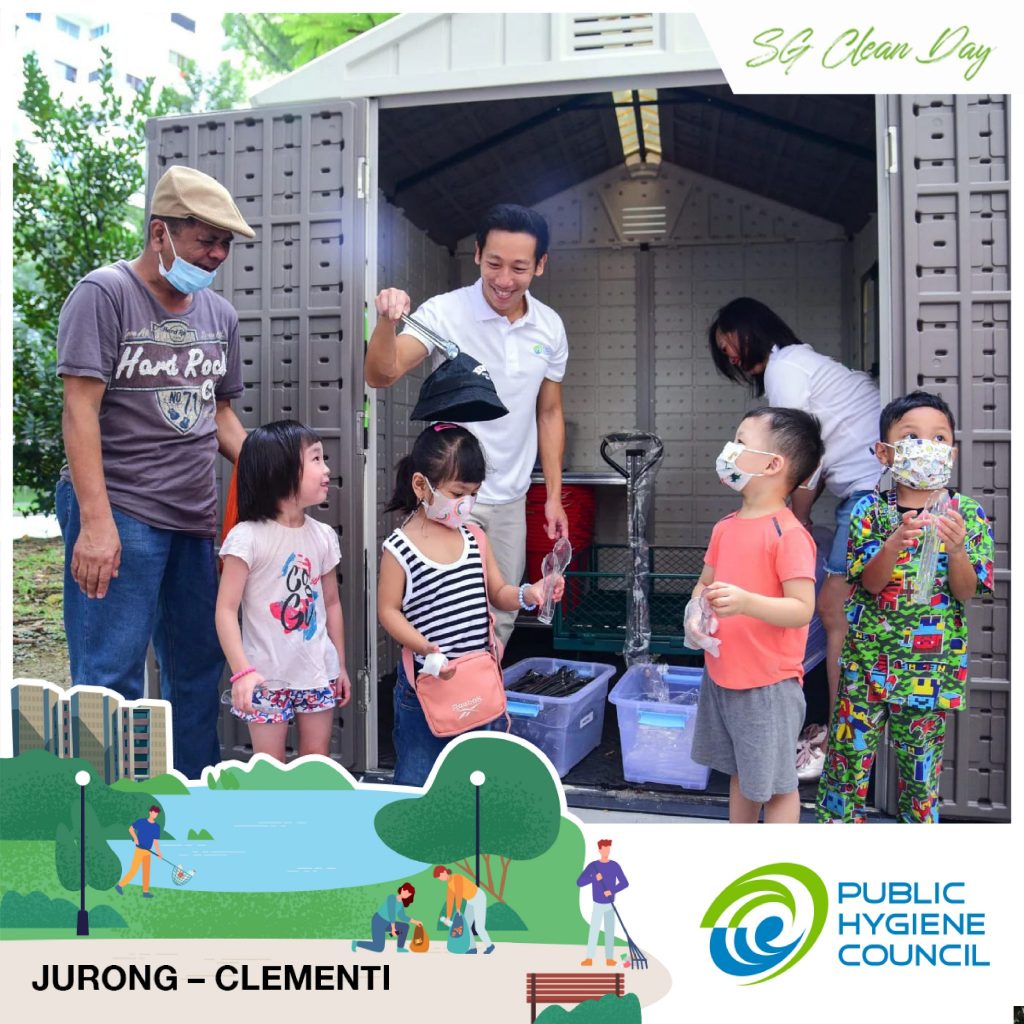
Children can be kind to the environment by helping to pick up litter and trash. This can save marine creatures and birds from eating or getting tangled in trash. Additionally, it pollutes the environment, ruining delicate ecosystems. At certain parks in Singapore, look for CleanPods to get free metal tongs, buckets, and garden carts for litter picking. Pick up the trash together with your children and return the cleaned items to the CleanPods for the next user. Some locations include Bishan-Ang Mo Kio Park, East Coast Park and Jurong Central Park. Other ways include recycling items or reusing them in different ways, and donating their toys, books and clothes. Let your children pick items they no longer wear or play with and set them aside in a box to be donated to others who need them.
Relevant Reads: KonMari Your Home
Volunteering in Singapore
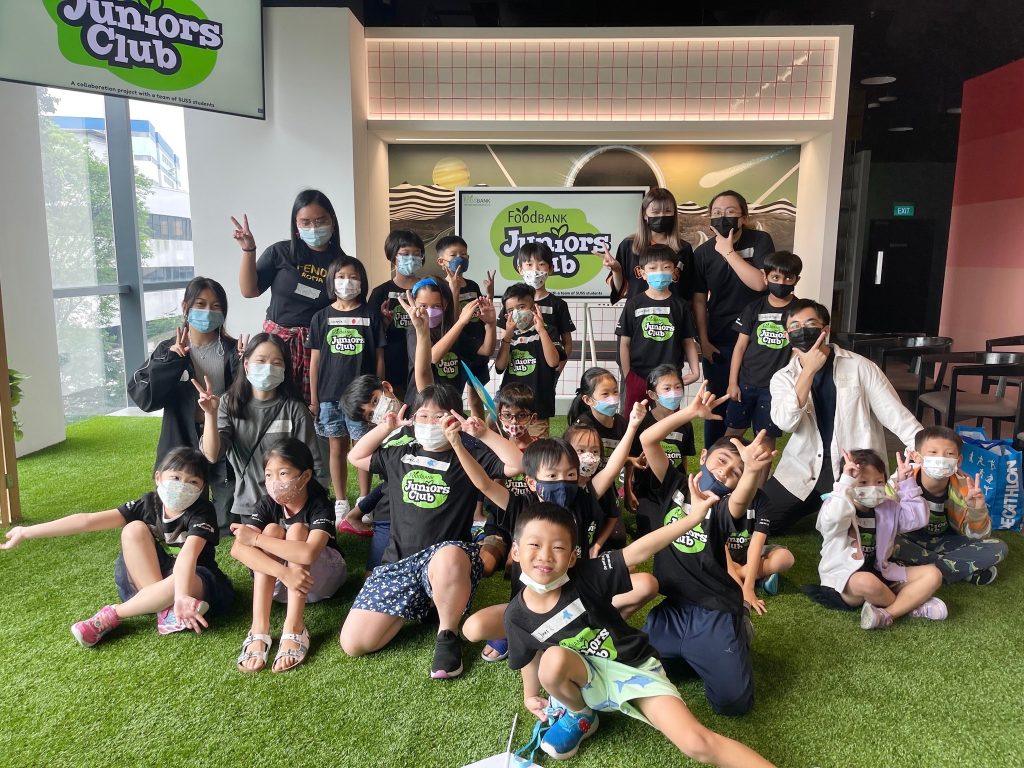
Preschoolers five and up can contribute to their community by volunteering. For example, The Food Bank Singapore’s Juniors Club helps build awareness among children and involves them in making an impact and positive social change. After learning about food insecurity and food wastage, they can then learn to take purposeful and informed steps to end hunger. Children 5 to 16 years old can take part in school holiday activities and register here. Other places to volunteer as a family include Therapy Dogs Singapore, Willing Hearts Soup Kitchen, and Lions Befrienders.
The Giving Tree
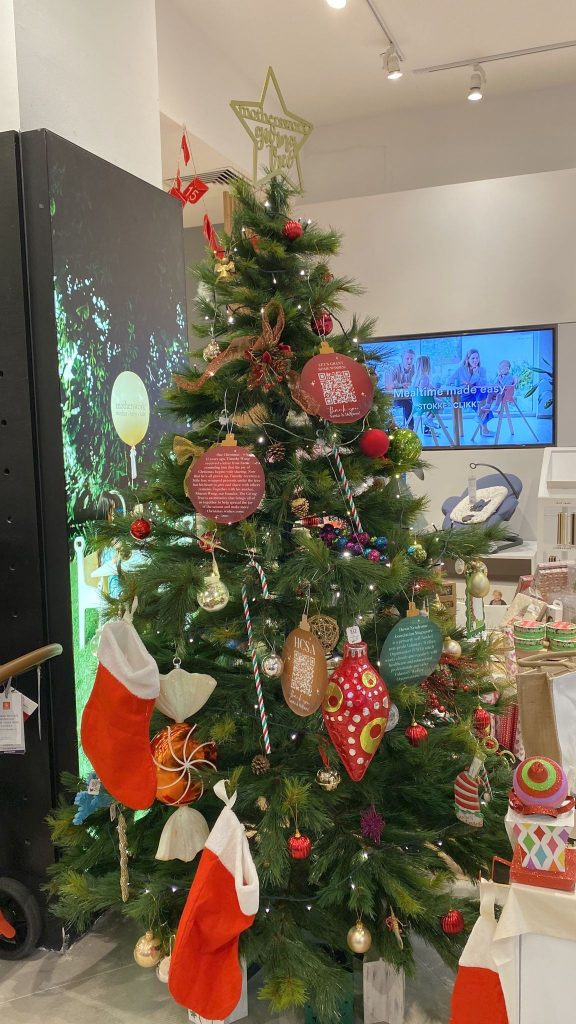
As a child, Timothy Wong received a letter from Santa reminding him that the joy of Christmas begins when sharing. Hence, he and his siblings would keep their three favourite gifts and donate the rest to the Salvation Army. Now, his heart to give and share with others still remains. Hence, Timothy and his mum Sharon Wong, our founder, started the Giving Tree initiative in 2016 to spread seasonal joy and make Christmas wishes come true. Shoppers can fulfill the recipients’ wishes on the Giving Tree, gifting them shopping mall or Motherswork vouchers and essentials like milk bottles, carriers and toys. Children can help their parents pick out the wishes and the related items to have a taste of giving and being kind to others.
This year, the Giving Tree initiative starts on 24 November, and will be part of SG Cares Giving Week, from 1 to 7 December. Those who fulfill wishes from the Giving Tree could also stand to win lucky draw prizes like a huge Jellycat, $200 voucher from Our Second Nature and $100 Urban Company voucher.
The Beneficiaries
Babes Pregnancy Crisis Support
Babes Pregnancy Crisis Support Ltd (Babes) assists pregnant teenagers in a crisis. The non-profit charity helps them have the opportunity and empower them to make informed decisions regarding their pregnancy. Babes also envisions an inclusive society, where teen girls can reach their full potential.
Down Syndrome Association (Singapore)
Borne from a group of loving and devoted parents with Down Syndrome, the Down Syndrome Association is a primarily self-funding, non-profit social service agency. Established in 1996, it supports and educates families, professionals and the public about this genetic condition. The Association acknowledges and respects the right of all persons with Down Syndrome to recevie support for their needs. They are committed to provide support and enable persons with Down syndrome fulfill their potential, lead a meaningful life and contribute to society.
HCSA Community Services
HCSA Community Services initially began in 1996 as a halfway house for ex-offenders and recovering drug addicts. Now, their services have extended to teenage girls who have experienced the complex trauma of physical, sexual or emotional abuse, and single parents with limited support.
In particular, HCSA Dayspring SPIN (Single Parents INformed, INvolved and INcluded) collaborates with the National Council or Social Service (NCSS). It aims to empower and improve the quality of life for single parents or lone caregivers who may lack or have limited emotional, physical or practical support. SPIN has an ally network of volunteers and an interactive website to empower single parents to be resilient and self-reliant. HCSA Dayspring SPIN helps increase their capacity in parenting, caregiving, social support, practical resources and psychological well-being.
Similar to Babes, Dayspring Residential Treatment Centre provides a safe, caring and therapeutic environment for teenage girls. These girls have suffered the complex trauma of abuse, and can become healthy individuals through the application of certified clinical therapy sessions. Hence, they can successfully reintegrate into their schools, families and society. In 2017, Dayspring Residential Treatment Centre transited to a Therapeutic Group Home service model for older girls with higher needs and risks.
This article originally appeared on Motherswork.



